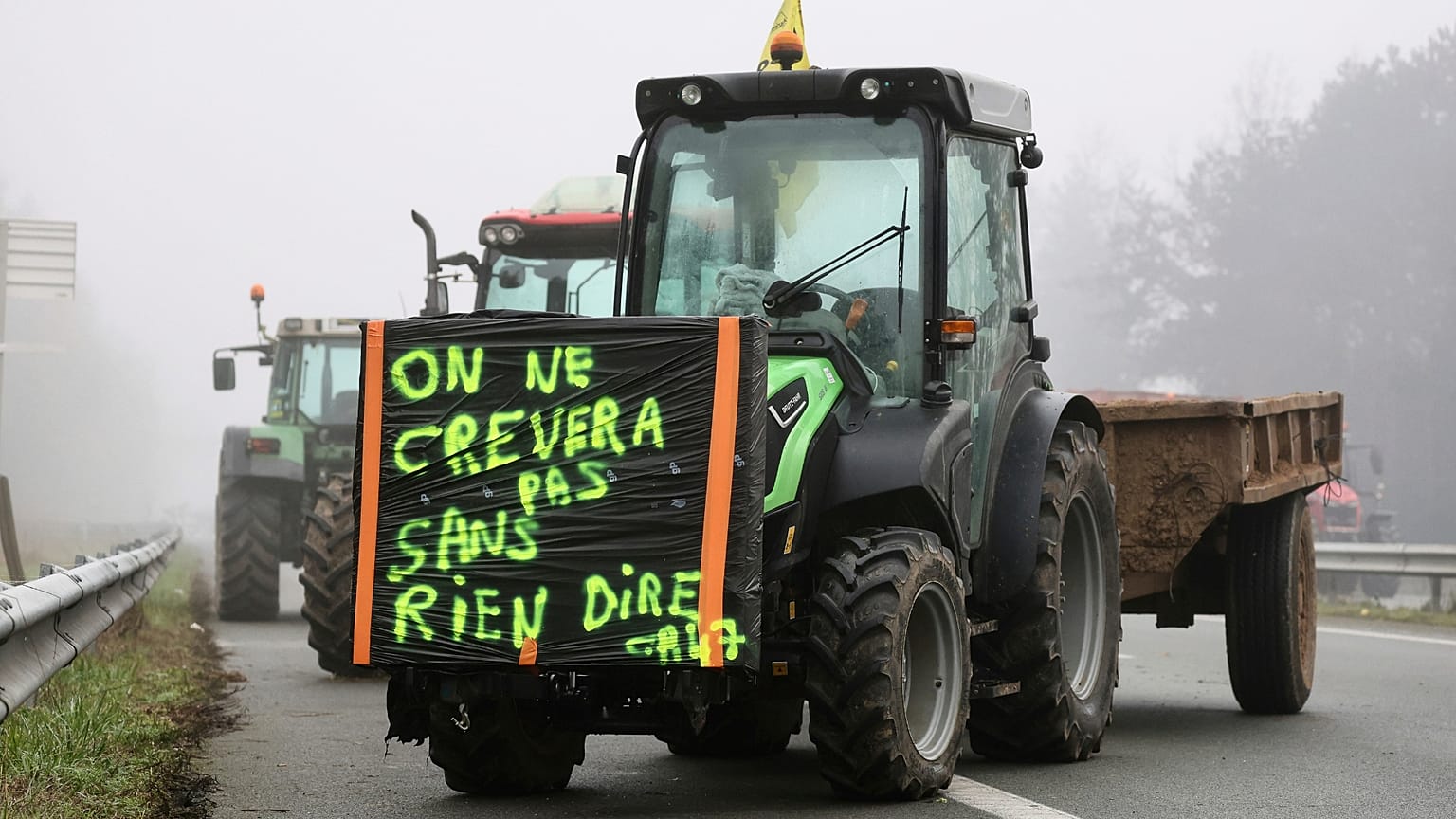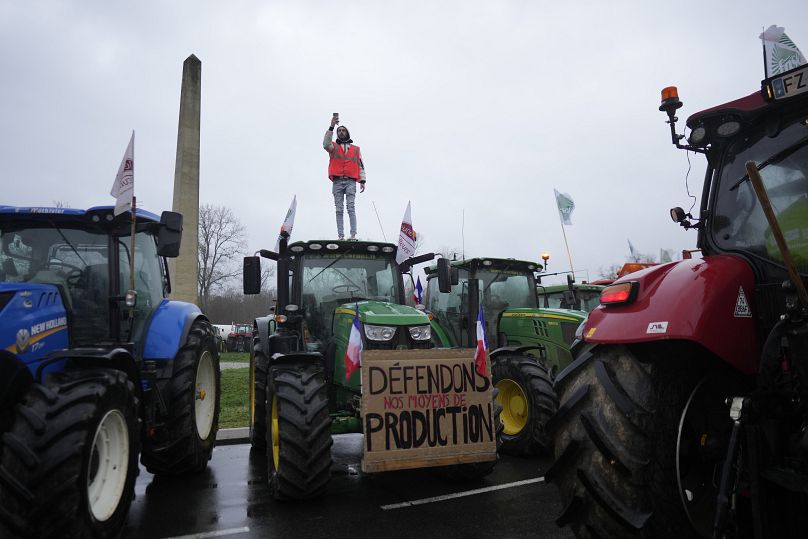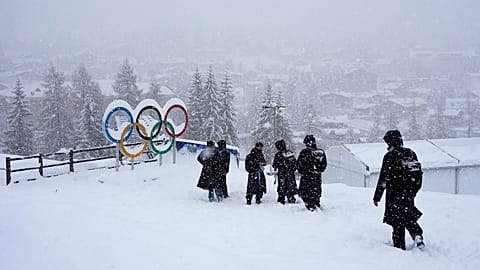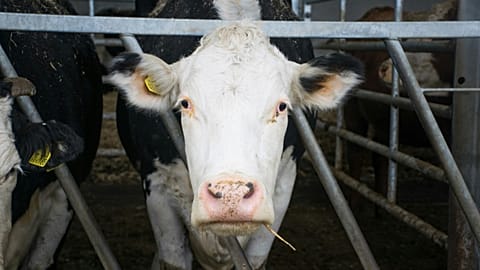More than 50 environmental groups have issued a joint statement saying they have always been allies to farmers
Measures intended to appease the anger of French farmers have come under fire from both unions and environmentalists.
 ADVERTISEMENT
ADVERTISEMENT
 ADVERTISEMENT
ADVERTISEMENT
The announcements by Prime Minister Gabriel Attal on Friday fell short of the protesters’ demands with blockades and demonstrations continuing this week.
On Tuesday, hundreds of tractors and bales of hay blocked roads encircling Paris. Protesters have come with food, water and tents, making their plan for an extended battle clear with more government announcements expected soon.
But the farmers have found a seemingly unlikely ally in environmentalists who have come out to say their anger is “just and legitimate”.
Though tougher green agricultural policies form part of the farmers’ list of grievances, climate activists joined in on Sunday, throwing soup at the Mona Lisa in the Louvre Museum.
“Our farming system is sick. Our farmers are dying at work,” they shouted. The group, called ‘Food Riposte’, says on its website that the French government’s agricultural policies are breaking its climate commitments and don’t “respect our fundamental right to food”.
‘We refuse to be labelled as enemies’
Many climate groups recognise that they may seem like the natural opposition when it comes to rolling back environmental red tape.
But a joint statement released by more than 50 green organisations in France - including Friends of the Earth, Greenpeace, and Extinction Rebellion - says they “refuse to be labelled as enemies” of the farmers.
“We know the impact agriculture has on the environment: the quality of the earth, air, water, what we eat and of course the climate all depend on what we grow and raise and how we do it,” it reads.
“Environmental standards should not be attacked indiscriminately, but should be financed in such a way as to maintain incomes and make their application compatible with farming practices.”
The statement adds that environmental groups have long proposed and supported policies that would help farmers switch to other crops. It says they shouldn’t be left to cope with green standards without compensation and shouldn’t have to compete with cheap imports.
“We have always been allies of the farmers. And contrary to what the government propaganda says or the authoritarian rhetoric that stirs up hatred between us in order to make more money off of our lives, we will continue to be your allies, because it's a question of survival.”
The anger of the farmers is legitimate, Greenpeace says
Greenpeace France is also backing demands for a ban on the sale of agricultural products at prices below what they cost to produce, minimum prices for imported food and strict controls on how much profit supermarkets can make on produce among other measures.
“The anger of farmers is just and legitimate, and we share it", says Sandy Olivar Calvo, agriculture and food campaigner at Greenpeace France.
But there are places where the two groups differ. Greenpeace believes that the ultra-intensive vision of agriculture given by the two French unions - FNSEA and the Jeunes Agriculteurs - is not the answer and doesn’t represent the views of many farmers participating in the protests.
They also have objections to some of Prime Minister Attal’s measures including the cancellation of a tax increase on agricultural diesel and limiting local residents’ objections to agricultural mega-projects. These solutions, climate campaigners say, don’t get to the root of the real problem.
“It is neither by lowering our environmental ambitions nor by promoting pesticides, GMOs and the hyper-industrialisation of production systems that we will be able to get out of the deep and structural crisis we are experiencing today,” Olivar Calvo adds.
“French agriculture needs a complete revolution, based on the agroecological transition, to guarantee conditions and incomes that will enable farmers to live in dignity while preserving the ecosystems they need to survive.”


















